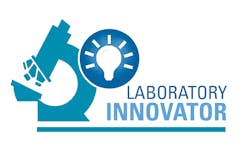Advocacy and advancements remain key to AMP’s future success
With your established background in academia, what benefit did your university teaching experience offer in the transition to your current role as president of AMP?
As President of AMP, my main responsibility is to represent the full membership in advocacy efforts to help strengthen AMP’s position as the premier expert resource for all molecular testing around the world. In my daily practice, I direct and oversee an academic molecular laboratory at the University of North Carolina School of Medicine that develops, validates and performs molecular testing for inherited diseases and oncology. I love doing this and also love teaching and interacting with the fellows in our training programs. I am also involved in several exome/genome sequencing research projects and with a new UNC Program for Precision Medicine in Healthcare. These experiences have enabled me to work with many different groups of people and gain a solid working understanding of the goals and challenges of AMP members.
What is the biggest challenge facing the field of molecular pathology right now, and what steps are being considered as solutions?
Over the past several years, we have seen significant technology advancements in molecular diagnostics that have helped transform our ability to detect, monitor and treat cancer and other complex diseases. Our biggest challenge is how to continue to incorporate all of these amazing advances as part of our ongoing commitment to improving our professional practice. There are also significant hurdles in how large-scale genomic data is interpreted, stored and incorporated in electronic health records. To top it all off, we must also deal with other outside threats such as U.S. Food and Drug Aministration (FDA) overregulation, patent legislation and inadequate insurance reimbursement.
AMP will continue to advocate for adequate insurance reimbursement and appropriate government oversight of molecular laboratory-developed testing procedures (LDPs). We will also continue to engage key stakeholders to make sure the latest proposed legislation relating to gene patents does not overturn 150 years of patent case law, prevent the development of life-saving diagnostics for devastating diseases, dramatically increase drug costs, and significantly limit access to optimal patient care.
AMP will also continue to develop and update consensus, evidence-based recommendations to aid clinical laboratory professionals as new data and/or reference materials become available. We are also providing recommendations for bioinformatics and data integration.
What has been your most important goal for AMP since becoming president of the association and how will it affect AMP members and the lab industry?
My most important goal as president has been to continue the great advocacy work that AMP is doing to ensure that molecular LDPs can continue to be developed and used for patient care.
Earlier this year, AMP was very pleased to work with Senator Rand Paul on the Verified Innovative Testing in American Laboratories (VITAL) Act of 2020. If enacted, this new bill would clarify the federal regulatory authority over LDPs and encourage the modernization of the existing Clinical Laboratory Improvement Amendments (CLIA), which are administered by the Centers for Medicare & Medicaid Services (CMS). The legislation was designed to enhance transparency, preserve innovation and ensure widespread patient access to essential medical services.
How can current molecular testing protocols and demands be improved for more streamlined and efficient processes in the future?
Molecular diagnostics is a rapidly changing field and we are constantly witnessing innovative technologies and advancements that improve our ability to care for our patients. In the near future, I would expect to see clinical laboratories adopt more automated platforms and technology that incorporates machine learning or artificial intelligence to help further accelerate workflows and streamline the data analysis process.
In your opinion, how has the COVID-19 pandemic impacted the clinical lab industry most, and how will this influence molecular pathology over the next five to 10 years?
The current coronavirus pandemic has underscored the integral role that public health, local academic and community laboratories play in both patient care and public health surveillance and, at the same time, highlighted the inefficiency of the FDA oversight process. I am hopeful this situation will allow us to reconsider the regulation strategy for all molecular testing. We must enact regulation that takes advantage of the broad expertise in this country and enables widespread access to these vital medical procedures.
AMP has long maintained that the involvement of appropriately trained and qualified laboratory professionals is critical to the development of accurate and reliable LDPs, as well as for correct utilization, precise interpretation and appropriate application of molecular test results. The VITAL Act of 2020 is a first step in the right direction to establish a more efficient regulatory framework that ensures high‐quality patient care while continuing to foster the rapid innovation and promise of new diagnostic technologies.
Karen E. Weck, MD, FCAP
President, Association for Molecular Pathology
Professor of Pathology and Laboratory Medicine
Professor of Genetics
University of North Carolina at Chapel Hill
Director, Molecular Genetics Laboratory
McLendon Clinical labs, UNC Hospitals


